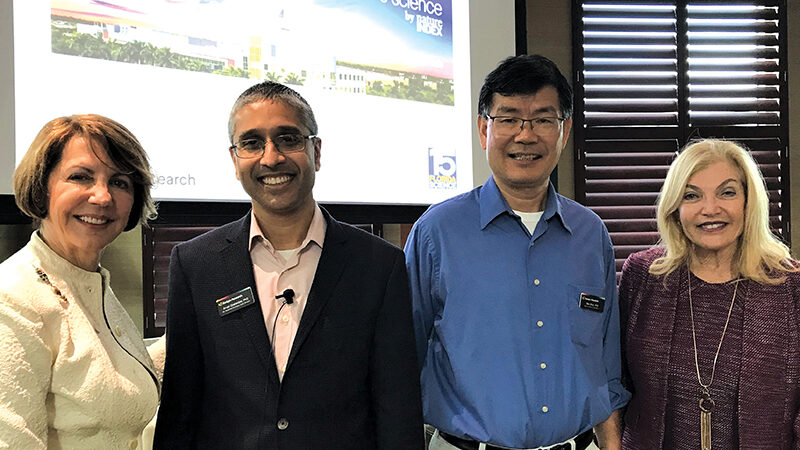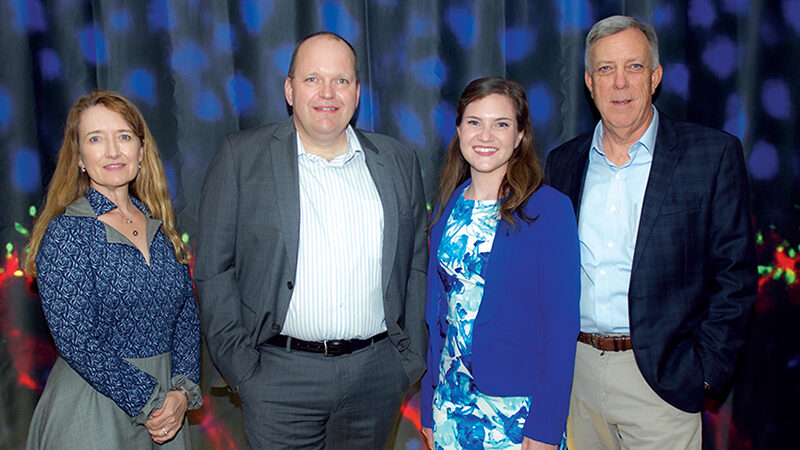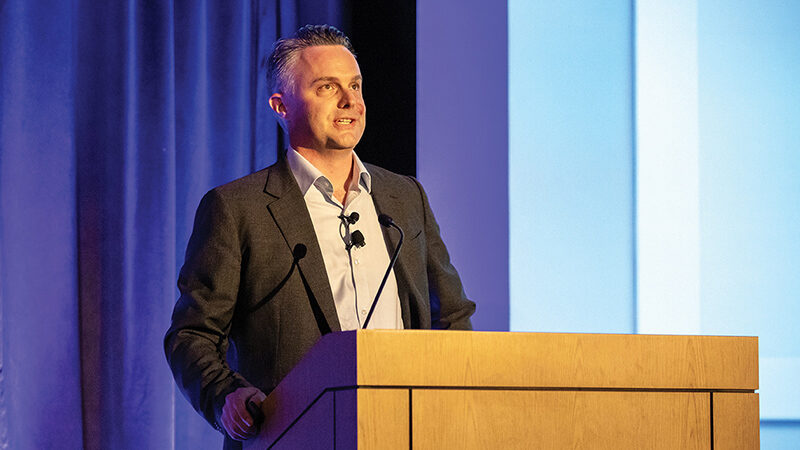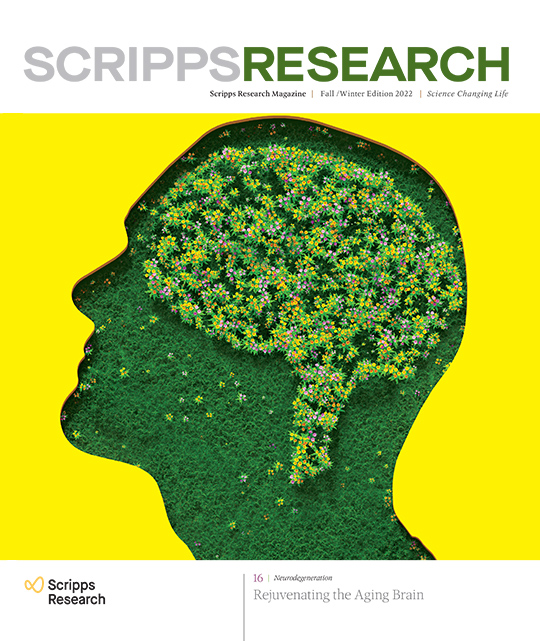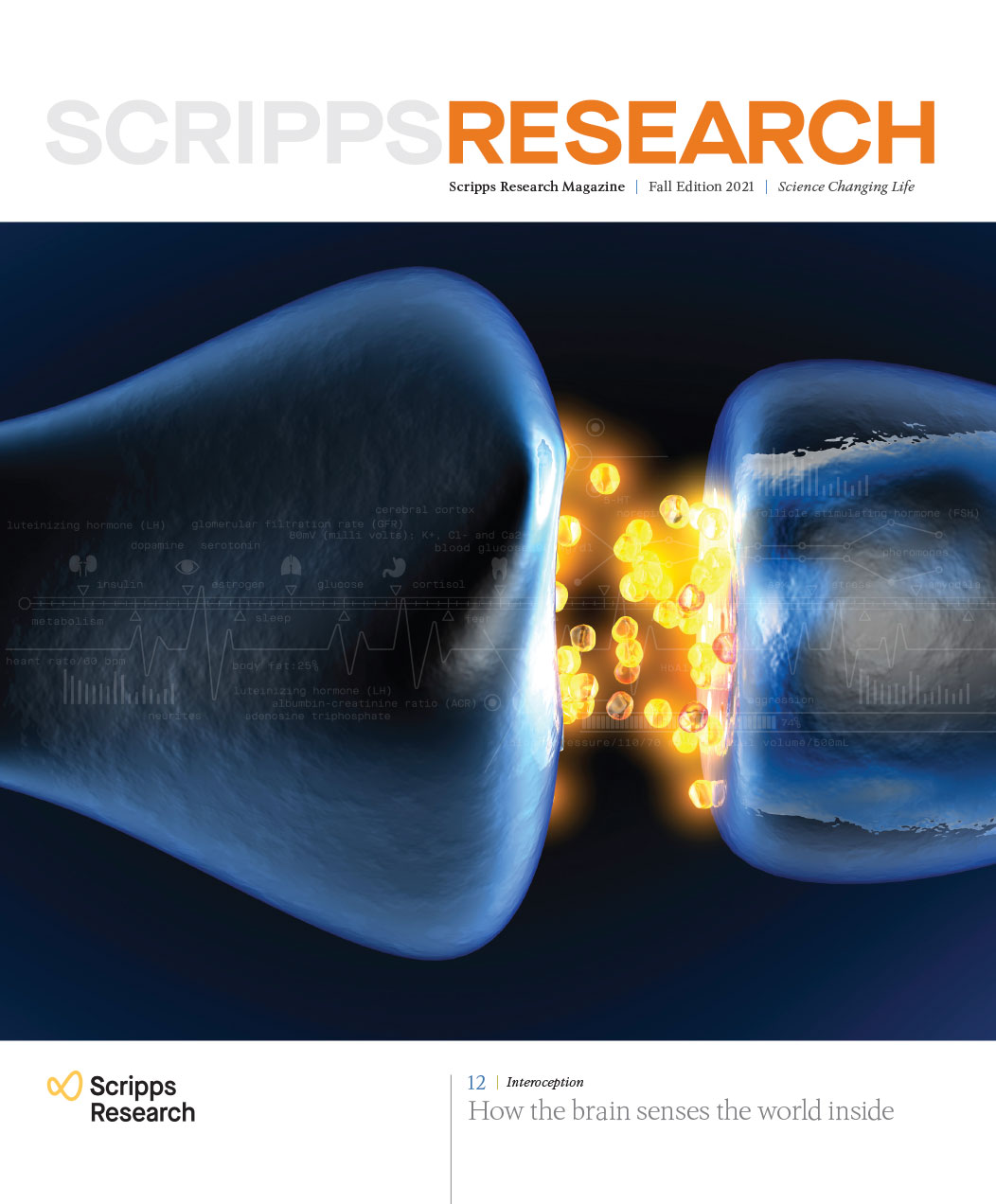
Winter/Spring 2020
Women Changing Science
Science Changing Exploration

Science Changing Exploration
The Heart of an Explorer
To a structural biologist, the body is its own universe. Within each cell, each uncharacterized protein, peptide, enzyme or lipid represents an undiscovered new world no less awesome than the stars and planets.
Science Changing Digital Medicine

Science Changing Digital Medicine
Information is: power
Information is: accessible, thought-provoking, life-saving, preventative, empowering, digital, intelligent, fluid.
Women Changing Science

Women Changing Science
Empowering women in science
Women scientists at Scripps Research are heading the change to make science more diverse.
President’s Letter
At its essence, science is about two things: seeing and knowing
Many of the tools of the trade—microscopes, telescopes, spectroscopes, and so on—end with a suffix derived from the Greek word skopein, meaning “to look.” The word “science” itself stems from the Latin word scire, meaning “to know.” Together, these are the driving forces of science: to see so that we can know.

Awards & Honors
Hollis Cline, PhD, chair of the Scripps Research Department of Neuroscience in La Jolla, received the Mika Saltpeter Lifetime Achievement Award.
Mika Saltpeter Lifetime Achievement Award
The honor, bestowed by the Society for Neuroscience, recognizes highly accomplished neuroscientists who have significantly promoted the professional advancement of women in the field.

Awards & Honors
The prize honors outstanding basic research in the fields of biology or biochemistry.
Louisa Gross Horwitz Prize
Peter Vogt, PhD, a Scripps Research professor who has uncovered new genetic underpinnings of cancer, is among three scientists to receive Columbia University’s prestigious 2019 Louisa Gross Horwitz Prize.

Awards & Honors
Ardem Patapoutian, PhD was honored for his contributions to the understanding of the mechanisms of touch and pain.
Lewis S. Rosenstiel Award
Ardem Patapoutian, PhD, a professor in the Department of Neuroscience, has been named a recipient of the 49th Lewis S. Rosenstiel Award for Distinguished Work in Basic Medical Research

Awards & Honors
The American Chemical Society (ACS) has named Paul Schimmel, PhD, the recipient of its 2020 Kathryn C. Hach Award for Entrepreneurial Success.
Kathryn C. Hach Award for Entrepreneurial Success
Paul Schimmel, PhD, a professor in the Department of Molecular Medicine, is a world-renowned expert in studying the enzymes and processes involved in correcting errors that can occur in the interpretation of genetic information.

Awards & Honors
Eric Topol, MD, merges genomics and digital medicine with artificial intelligence to tailor medicine to the individual
Cardiovascular Research Foundation
Eric Topol, MD, was honored by the Cardiovascular Research Foundation for his contributions in genomic and digital technologies to transform the practice of medicine.

Awards & Honors
The Human Proteome Organization named John Yates, PhD, the recipient of its 2019 Discovery in Proteomic Sciences Award
Discovery in Proteomic Sciences Award
HUPO cited his contribution of “numerous methods to comprehensively study proteomes to highlight the biological context in question in quantitative approaches.”

Awards & Honors
Outstanding Mentor
Kirill Martemyanov, PhD, professor and co-chair in the Department of Neuroscience, has been named “Outstanding Mentor” on the Florida campus of Scripps Research.

Awards & Honors
Peter Schultz, PhD, honored by prestigious Tetrahedron journal series
Tetrahedron Prize for Creativity
The 2019 Tetrahedron Prize for Creativity in Organic Chemistry was awarded to Peter Schultz, PhD, President and CEO of Scripps Research, in recognition of his advances in the fields of chemical biology and drug discovery.

Noteworthy
View AllIconic actor Alan Alda, Scripps Research join forces to bring science communication training to West Coast
The partnership will empower scientists and medical professionals to convey complex topics to the public.

Noteworthy
View AllScripps Research and AbbVie collaborate to develop a broad range of new medicines
The collaboration will aim to develop new therapies for a range of diseases—including indications spanning oncology, immunology, neurology and fibrosis.

Noteworthy
View AllScripps Research’s Florida campus added at least $3 billion to local economy since 2004
Through spinoff companies, eye-opening internships and its draw of other scientific organizations, Scripps Research has infused a new kind of energy into Florida's Palm Beach County.
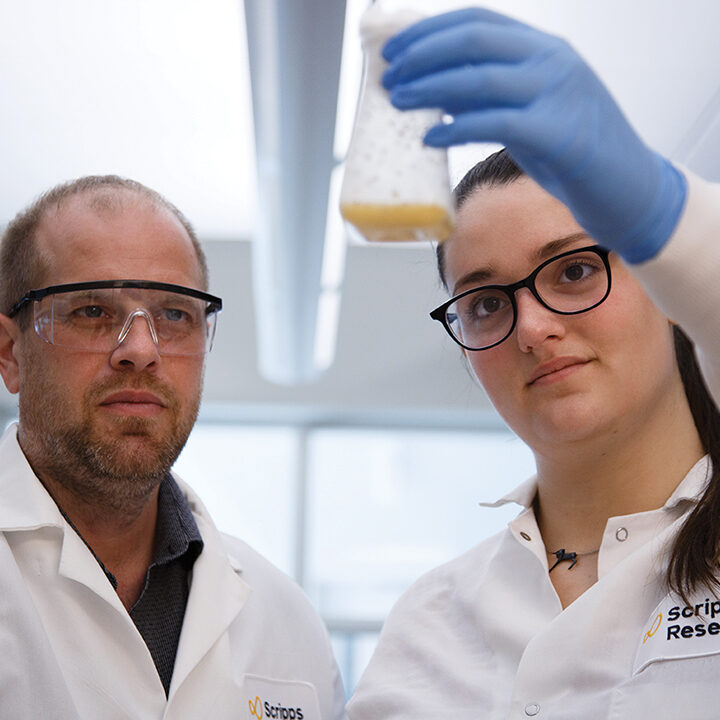
Events
View AllRecent Discoveries
See AllScripps Research advances scientific understanding, educates the scientists of tomorrow and impacts human health across the globe. We are science changing life.

